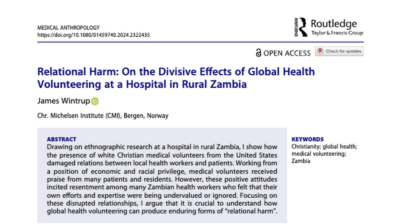The decision to vaccinate a child: An economic perspective from southern Malawi
The dynamics of childhood vaccination uptake in developing countries are unclear. Numerous studies document the relationship between vaccination coverage and access, socio economic and demographic factors. However, there is less knowledge about the relationship between vaccination coverage and carers' motivation and willingness to seek childhood vaccinations. The aim of this paper is to introduce a framework for studying demand for childhood vaccination and to examine the coherence between theoretical predictions and empirical findings in a rural area in Malawi. We interviewed 635 carers with children aged 18–59 months. About 96 percent of the respondents reported to have fully vaccinated their youngest eligible child for all routine vaccinations scheduled in the Expanded Program on Immunization. This paper concludes that easy access to vaccination services cannot explain why demand is high. Many carers had to travel long distances to reach vaccination delivery points and a considerable share of the respondents scored waiting and travelling time as long. Results from the present study, in combination with theoretical predictions, suggest that a high level of trust in distributors of information and vaccines may be an essential explanatory factor for why carers seek immunization for their children, even in the presence of considerable costs. Trust may be an important explanatory factor as it can be seen to generate positive perceived benefits.
Ottar Mæstad








